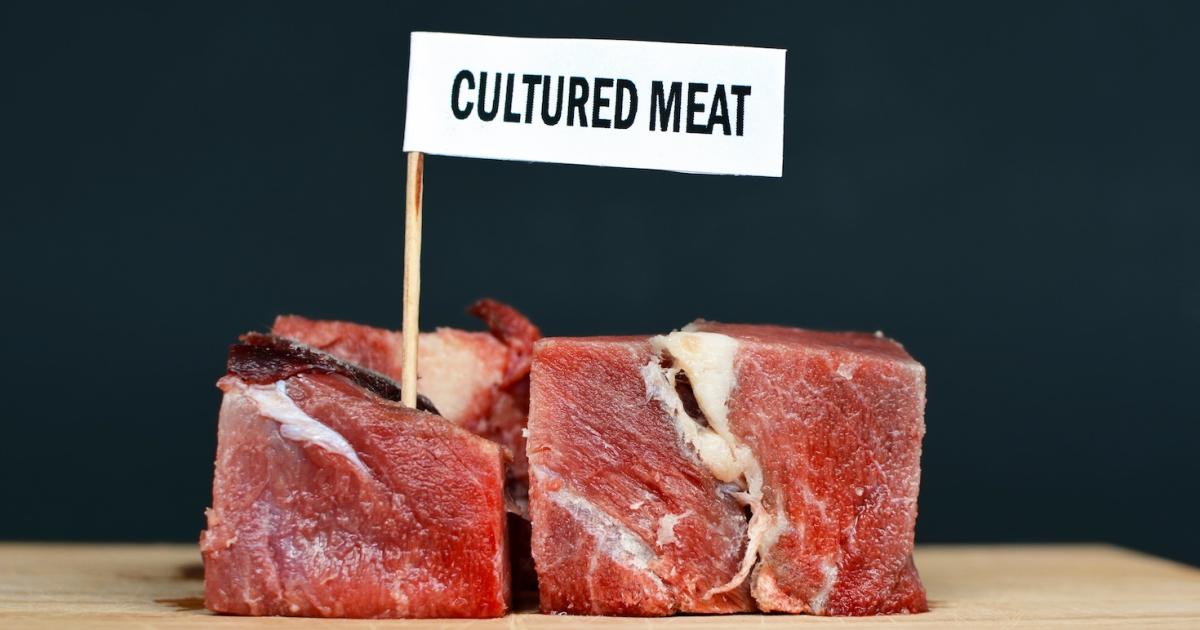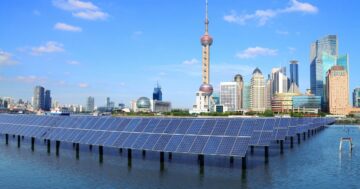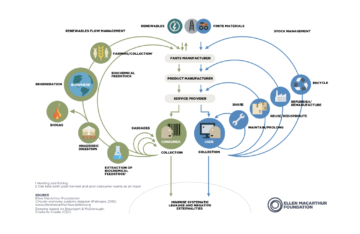
Florida Gov. Ron DeSantis signed into law a bill that bans lab-grown meat in the state. Specifically, SB 1084 bans the manufacturing and sale of lab-grown meat in an effort to protect the state’s cattle industry against the rising competition. Opponents say the ban will limit future venture capital flowing into Florida; Emily Bogan, head of business operations at cultivated meat company Fork & Good, testified before a state legislative panel in February that “(a) ban like this threatens a free market and set a dangerous precedent for government interference.”
The G-7 nations — U.S., France, Germany, Japan, Canada, Italy and the U.K. — committed to eliminating coal from their power sector by 2035 unless utilities are able to capture their emissions. This news follows the Biden administration’s announcement that all newly built natural gas and coal-fired power plants must capture their emissions by 2032 or shut down by 2039.
The Colorado River Indian Tribes (CRIT), which comprise the Mohave, Chemehuavi, Hopi and Navajo, signed an agreement with the state of Arizona and the Department of the Interior that asserts the tribes’ rights to lease their portions of the Colorado River to users outside of the tribal land. The Tribes have held the largest portions of rights to the Colorado River since the mid-1800s, but were barred from deciding how the water outside of their tribal land could be used. The tribes’ water attorney, Margaret Vick, said that the agreement’s goal was to “obtain and confirm [CRIT’s] sovereign authority to enter agreements to lease or conserve water off reservation in exchange for secure revenue.”
The Department of Energy published a pair of reports this week confirming that artificial intelligence could help mitigate the environmental impacts of the U.S. grid — but the technology and its security is still too nascent to deploy without a thorough vetting process. According to one of the reports, “AI for Energy: Opportunities for a Modern Grid and Clean Energy Economy,” AI could be leveraged to decrease emissions and lower the costs of the current national grid system, but further investment into R&D is necessary to ensure that the program is protected against virtual attacks that could shutter the grid.
- SEO Powered Content & PR Distribution. Get Amplified Today.
- PlatoData.Network Vertical Generative Ai. Empower Yourself. Access Here.
- PlatoAiStream. Web3 Intelligence. Knowledge Amplified. Access Here.
- PlatoESG. Carbon, CleanTech, Energy, Environment, Solar, Waste Management. Access Here.
- PlatoHealth. Biotech and Clinical Trials Intelligence. Access Here.
- Source: https://www.greenbiz.com/article/week-climate-policy-4-updates-you-need-know-2
- :is
- 4
- 5
- 7
- a
- Able
- According
- against
- Agreement
- agreements
- AI
- All
- an
- and
- Announcement
- ARE
- arizona
- At
- Attacks
- attorney
- authority
- Ban
- Bans
- BE
- before
- biden
- Bill
- built
- business
- business operations
- but
- by
- Canada
- capital
- capture
- cattle
- clean
- clean energy
- Climate
- Coal
- Colorado
- company
- competition
- Confirm
- confirming
- Costs
- could
- Current
- Dangerous
- dangerous precedent
- Deciding
- decrease
- Department
- Department of Energy
- deploy
- down
- effort
- Emissions
- energy
- ensure
- Enter
- environmental
- Ether (ETH)
- exchange
- February
- florida
- Flowing
- follows
- For
- fork
- France
- Free
- from
- further
- future
- GAS
- Germany
- goal
- good
- Government
- Grid
- Have
- head
- Held
- help
- How
- HTTPS
- Impacts
- in
- Indian
- industry
- Intelligence
- interference
- into
- investment
- Italy
- ITS
- Japan
- jpg
- Know
- Land
- largest
- Law
- Legislative
- leveraged
- like
- LIMIT
- lower
- manufacturing
- Meat
- Mitigate
- Modern
- must
- nascent
- National
- Nations
- Natural
- Natural Gas
- necessary
- Need
- newly
- news
- obtain
- of
- off
- ONE
- Operations
- opponents
- opportunities
- or
- outside
- pair
- panel
- plants
- plato
- Plato Data Intelligence
- PlatoData
- policy
- portions
- power
- power plants
- Precedent
- process
- Program
- protect
- protected
- R&D
- Reports
- reservation
- revenue
- rights
- rising
- River
- RON
- s
- Said
- sale
- say
- sector
- secure
- security
- set
- shut
- Shut down
- signed
- since
- sovereign
- specifically
- State
- Still
- system
- Technology
- testified
- that
- The
- The State
- their
- this
- thorough
- to
- too
- Tribal
- tribes
- U.K.
- u.s.
- Updates
- used
- users
- utilities
- venture
- venture capital
- vick
- Virtual
- was
- Water
- week
- were
- which
- will
- with
- without
- you
- zephyrnet










